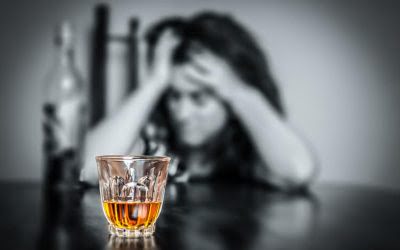Content
Psychological dependence is when the use of substance ties to a feeling or event, called triggers. It’s not quite the same as physiological dependence, because it requires a trigger for you to crave that substance. Not unlike addiction, physiological dependency changes your brain chemistry. Tolerance does build up over time, which changes how the brain reacts to the presence of the drug. It may release fewer neurotransmitters, hormones, or chemicals until it detects the drug in your system. Certain behavioural scientists believe, especially those involved in addiction research, that any behaviour that stimulates a person has the opportunity to become addictive, as it is directly influencing a person’s feelings.
- Protracted withdrawal syndrome can last for months, years, or depending on individual factors, indefinitely.
- This experimental design can be further modified by the use of discriminative contextual cues.
- Chaudhri N, Sahuque LL, Janak PH. Context-induced relapse of conditioned behavioral responding to ethanol cues in rats.
- As previously noted, increased anxiety represents a significant component of the alcohol withdrawal syndrome.
“With addiction, you may have dependence on the medication, but the real defining factor of addiction is that you’re using the drug despite negative consequences impacting your functionality,” Drits says. “Typically, you’ll have significant cravings, loss of control, and difficulty stopping even when you want to. In the case of addiction, an individual uses a given substance compulsively and often recklessly, without regard for personal consequences, and often cannot fulfill social obligations. Physical dependence is not necessarily a problem, in and of itself. For example, Drits notes that people with diabetes may become dependent on insulin, but that is not a reason to stop prescribing that medication. Dependence is simply a reality of taking certain medications that may be necessary. Find out what physical dependence is and how it differs from addiction.
We treat a variety of addictions at all levels of care. Learn more about our specific programs.
Left unmanaged, withdrawal from certain substances can be severe and even life threatening in some cases. Other withdrawal symptoms, like those mentioned in the coffee example, are just uncomfortable. You’re probably dealing with both a physical and psychological dependence in this case. When people use the term psychological addiction, they’re often talking about psychological dependence, not addiction. Psychological dependence is a term that describes the emotional or mental components of substance use disorder, such as strong cravings for the substance or behavior and difficulty thinking about anything else.
- Getting help for physical and mental dependence on drugs comes from the same place.
- Some addiction therapists believe psychological dependence is tougher to quit and requires more extensive aftercare.
- Classifying something as being either wholly physical or purely psychological indicates a misunderstanding of behavior as well as the brain and body connection.
- Physical dependence occurs when your body adapts to a drug or medication over an extended period.
- Substance abuse treatment programs usually include psychiatric care.
More direct evidence supporting increased alcohol consumption as a consequence of repeated withdrawal experience comes from animal studies linking dependence models with self-administration procedures. Similar results have been reported in mice, with voluntary alcohol consumption assessed using a limited access schedule (Becker and Lopez 2004; Dhaher et al. 2008; Finn et al. 2007; Lopez and Becker 2005). Further, the amount of work mice (Lopez et al. 2008) and rats (Brown et al. 1998) were willing to expend in order to receive alcohol reinforcement was significantly increased following repeated withdrawal experience. This suggests that the reinforcing value of alcohol may be enhanced as a result of experiencing repeated opportunities to respond for access to alcohol in the context of withdrawal.
Psychological vs. Physiological Dependence
The Joint Commission for the Accreditation of Healthcare Organizations evaluates quality of care provided by healthcare organizations. Footprints has the Gold Seal of Approval, which is the highest standard. The National Association of Addiction Treatment Providers is a nonprofit professional society designed to offer support to organizations across the continuum of care. Zironi I, Burattini C, Aicardi G, Janak PH. Context is a trigger for relapse to alcohol.

This can lead a person to do things they would not normally do. Overcome your addiction today with the help of one of the best https://ecosoberhouse.com/ addiction rehab centers in the U.S. The route to physical dependence can vary depending on what substance is being taken.
Holistic Treatment You Can Trust
Does not mean the patient has a substance use disorder — it just means they need medication to have a higher quality of life. Alcohol reduces inhibitions, slows down your cognitive faculties, reduces feelings of anxiety and stress, and overall tends to induce feelings of relaxation, as we discussed thoroughly above. Similarly, the behaviour of taking the drug is hard to stop. If they know they will feel anxious if they don’t take the drugs, it is hard to voluntarily submit yourself to uncomfortable feelings you could prevent by taking the drug. At 1st Step Behavioral Health, we work with most insurance providers to cover your costs of addiction treatment.

When you’re withdrawing, your heart and brain are under a lot of stress. Without medical supervision, it’s possible to experience seizures, as well as cardiac arrest. It is important to understand the difference physiological dependence on alcohol between the two types of dependence in order to get the right treatment when the time comes. If a loved one is struggling with a substance abuse problem, learning more about addiction can help save their lives.